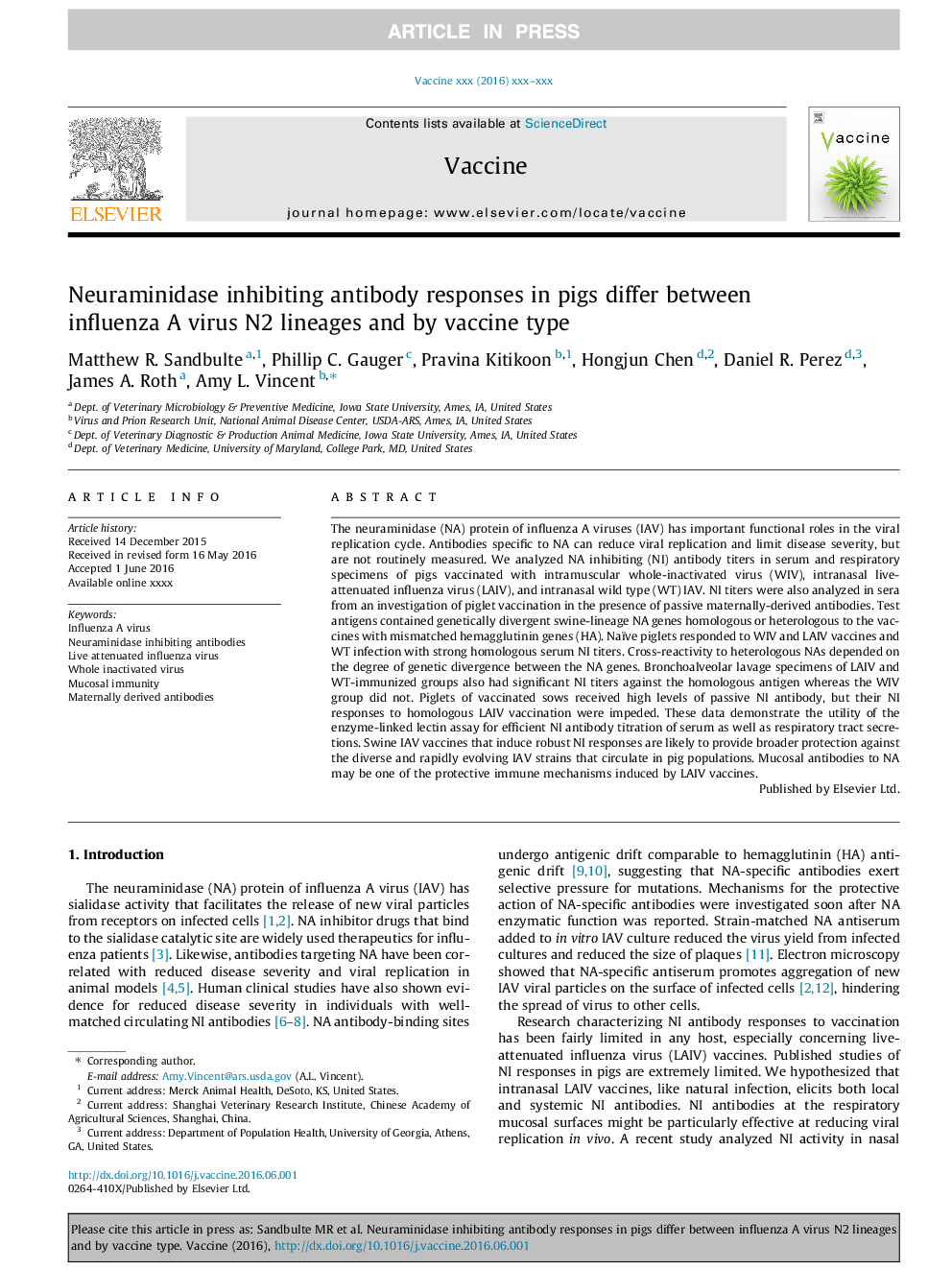| Article ID | Journal | Published Year | Pages | File Type |
|---|---|---|---|---|
| 10962487 | Vaccine | 2016 | 7 Pages |
Abstract
The neuraminidase (NA) protein of influenza A viruses (IAV) has important functional roles in the viral replication cycle. Antibodies specific to NA can reduce viral replication and limit disease severity, but are not routinely measured. We analyzed NA inhibiting (NI) antibody titers in serum and respiratory specimens of pigs vaccinated with intramuscular whole-inactivated virus (WIV), intranasal live-attenuated influenza virus (LAIV), and intranasal wild type (WT) IAV. NI titers were also analyzed in sera from an investigation of piglet vaccination in the presence of passive maternally-derived antibodies. Test antigens contained genetically divergent swine-lineage NA genes homologous or heterologous to the vaccines with mismatched hemagglutinin genes (HA). Naïve piglets responded to WIV and LAIV vaccines and WT infection with strong homologous serum NI titers. Cross-reactivity to heterologous NAs depended on the degree of genetic divergence between the NA genes. Bronchoalveolar lavage specimens of LAIV and WT-immunized groups also had significant NI titers against the homologous antigen whereas the WIV group did not. Piglets of vaccinated sows received high levels of passive NI antibody, but their NI responses to homologous LAIV vaccination were impeded. These data demonstrate the utility of the enzyme-linked lectin assay for efficient NI antibody titration of serum as well as respiratory tract secretions. Swine IAV vaccines that induce robust NI responses are likely to provide broader protection against the diverse and rapidly evolving IAV strains that circulate in pig populations. Mucosal antibodies to NA may be one of the protective immune mechanisms induced by LAIV vaccines.
Related Topics
Life Sciences
Immunology and Microbiology
Immunology
Authors
Matthew R. Sandbulte, Phillip C. Gauger, Pravina Kitikoon, Hongjun Chen, Daniel R. Perez, James A. Roth, Amy L. Vincent,
